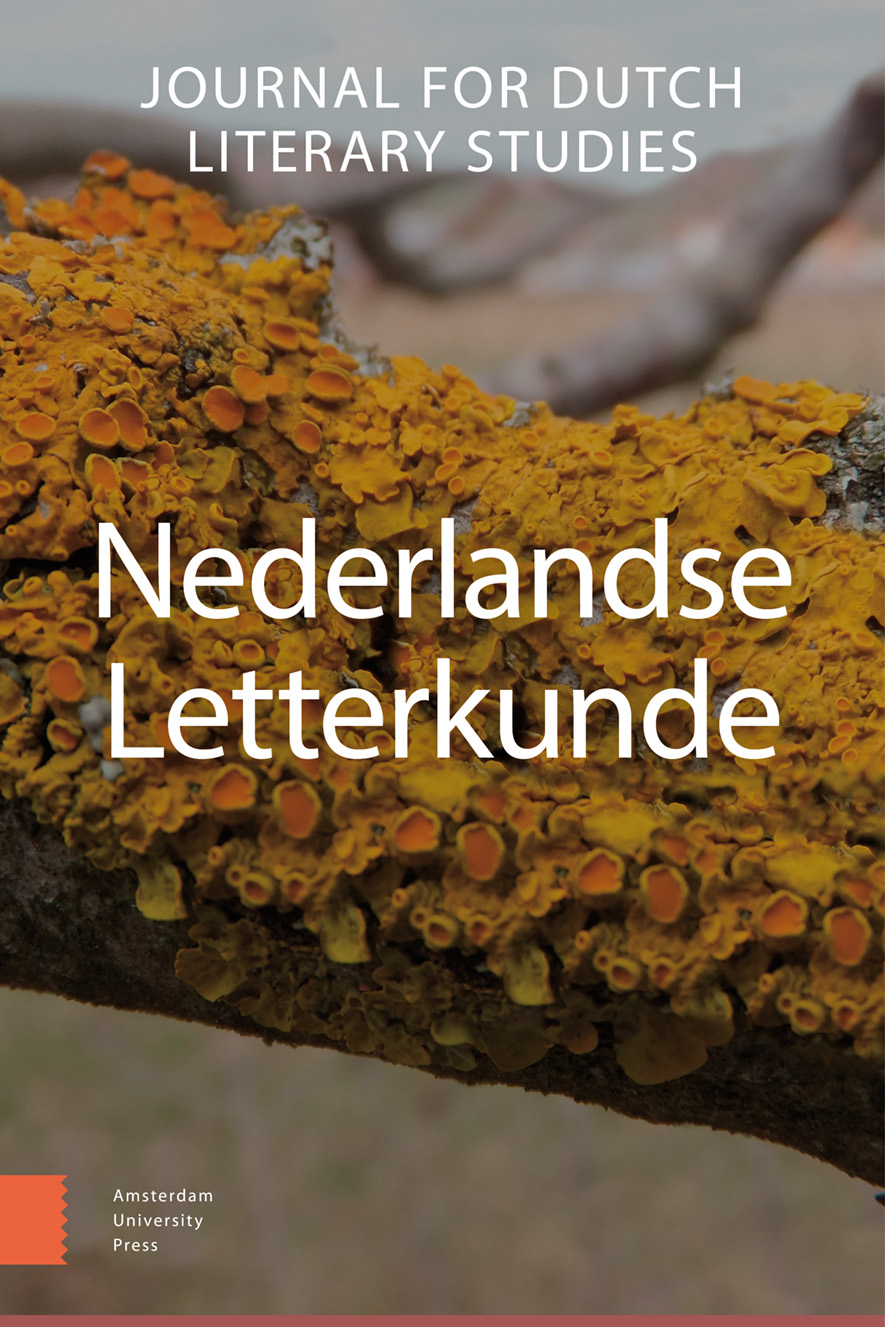-
oa ‘Leve de vrouw in al haar vrijheid. Rochelen is onfatsoenlijk’1
Moslims, mannelijkheid en ironie in het werk van Hafid Bouazza
- Amsterdam University Press
- Source: Nederlandse Letterkunde, Volume 24, Issue 2, Sep 2019, p. 253 - 270
-
- 01 Sep 2019
Abstract
‘Long live woman and her freedom. It is indecent to gurgle.’ Muslims, masculinity and irony in Hafid Bouazza's work
This article sets out to scrutinize the world of difference that lies between Hafid Bouazza’s story-collection De voeten van Abdullah from 1996, and his collection of essays De akker en de mantel from 2015. It does so by means of a critical re-reading of Bouazza’s celebrated 1996 debut, a work that at that time was primarily read as a tongue-in-cheek depiction of rural Muslim life. This re-reading positions De voeten van Abdullah in a ‘pre-post-erous’ relation to Bouazza’s later, Islam-critical, if not Islamophobic writing. This article’s comparative analysis of both works focuses in particular on the representation of Muslim masculinity and of the supposed threat that this particular masculinity poses to the position of women in society. As I will argue it is the transideological and elusive force of irony in Bouazza’s stories that makes them escape any final determination. The ‘pre-post-erous’ juxtaposition of the two works, however, not only reveals their ideological and historical situatedness, but also that of their readers/readings.


